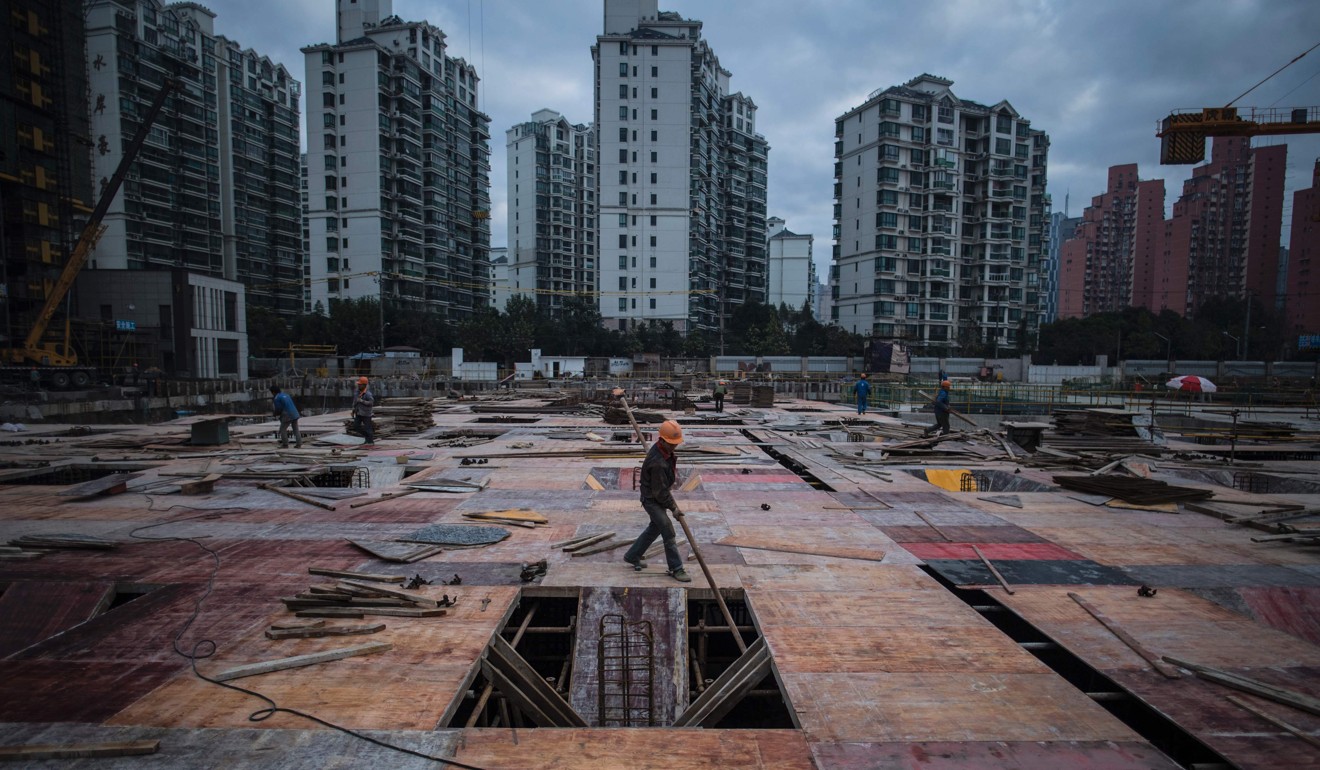
Analysis | Shanghai’s lack of affordable homes continues to be major headache for city’s authorities
Savills warns that ‘just lowering living costs is not enough to attract top businesspeople and professionals’
Just how much is Shanghai willing to tinker with its property policies, in pursuit of the very best global talent?
The authorities in the economic powerhouse are banking on its new land policies, aimed at curbing skyrocketing home prices, to eventually help draw top financial and IT professionals from abroad.
Industry officials, however, remain doubtful about its eventual success, because that particular narrative is not very well supported by fact.
“Shanghai still has [a lot] to learn from Hong Kong in making [housing] policies attractive to global talent,” said Andrew Kam, a director with property services firm Savills.
“Just lowering living costs is not enough to attract the best businesspeople and professionals.”
The mainland’s commercial capital has announced an ambitious plan of building 700,000 rental homes by 2020 for low-income residents, start-up entrepreneurs and hi-tech professionals, pledging to reserve more land for rental homes.

In the second half of 2017, the city auctioned 29 land sites to be used for leasing properties only, covering an area of 2.4 million square metres (25.8 million square feet), compared with the 1.8 million square metres of land sold for residential development in 2016. Around 40,000 units are expected to be built on those 29 sites.
Cen Fukang, a deputy director at the Shanghai Planning, Land and Resources Administration, claims land distribution for residential developments is now being tilted strongly towards rental, as officials increase their efforts to offer more affordable living, as the city strives to become a major global financial and tech hub.
New findings on cities with growing populations, however, published jointly by the United Nations and the Chinese Academy of Sciences, bluntly claim home prices in Shanghai and Hong Kong threaten their competitiveness, with highly-skilled professionals now shying away from moving there on account of the cost of living.
Industry executives, Kam included, say Shanghai will be unable to compete with Hong Kong at luring skilled professionals, unless its local authorities further fine-tune existing policies to let tenants enjoy the same access to public services as property owners.
Last year, Shanghai was picked as one of 12 cities to pilot a new policy under which residents renting a home there are treated equally to homeowners when it comes to medical and educational services.
However, the reality on the ground remains, that owners still take priority over renters when it comes to places at the most sought-after schools in many neighbourhoods.
Hong Kong still gains the upper hand over the mainland’s commercial capital in terms of urban planning, rule of law and taxation, Kam said.
Aside from salary and living costs, skilled professionals desire fairness and transparency in public services, he added.
Alva To, a vice president and head of consulting for Greater China at Cushman & Wakefield agrees.
“Free flow of information and few restrictions on capital outflow determine where expatriates go,” said To, citing the example of restrictions on the use of WhatsApp in the mainland he said.
“Expatriates will move to places where they can make money and repatriate capital back home fast. Hong Kong is such a place and that’s why expatriates continue coming even though home rents are higher than other cities,” said To.

Lee Quane, regional director for Asia at ECA International, a human resources consultancy, said Hong Kong remains a preferred destination for expatriates despite high housing costs owing to its relative attractiveness in terms of lifestyle opportunities, salary levels and career opportunities.
“Although housing costs are higher in Hong Kong than other locations in China, relatively low income tax rates mean that people are still left with attractive incomes. Furthermore, the city itself and its workplaces tend to be more international which give expatriate staff a better opportunity to develop their personal networks and their careers,” he said.
Medical service is another example of the need for transparency in public services in Shanghai. A lot of hospitals in the city force foreign patients to use VIP services to receive treatment, which charge higher fees.
Shanghai officials are aware of the need to establish a developed property leasing market to support its future growth. But that will takes some time
“Lots of people are interested in coming to work in Shanghai, but they are not convinced of the public services here,” said Ding Ziting, owner of a Shanghai visa service firm. “The plan to build more rental homes will add lustre to Shanghai, but we need to build good ones to their liking.”
The fact remains most rental homes under construction in the mainland’s most developed metropolis are being targeted at low-income citizens, rather than the highly skilled professionals the city needs to punch above its weight economically.
“Mid-level rental homes is still an underdeveloped market,” said Joe Zhou, head of research at JLL China.
“Shanghai officials are aware of the need to establish a developed property leasing market to support its future growth. But that will takes some time.”
Zhou says the city is shortest of homes renting out at between 5,000 and 20,000 yuan (US$766-3,065) monthly – price ranges which are affordable to top tech and financial professionals from around the world.
Making a financial return on building a home-rental project, meanwhile, is also proving a sticking point.
Eva Lee, a UBS property analyst, said asset-backed securities and government-backed real estate funds are proving to be good options, to encourage the development of more rental homes.
She estimates the average rental income-to-home price ratio now stands between 1 and 2 per cent.
“The return rate from rental income is truly low,” Lee said. “This is also why it is difficult to establish a mature home rental market.”
Additional reporting by Sandy Li

